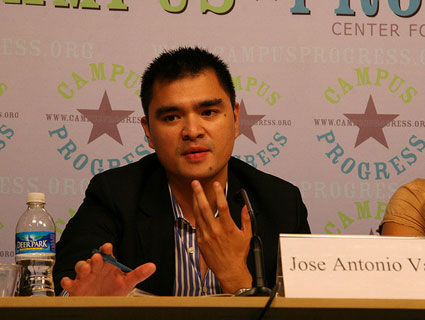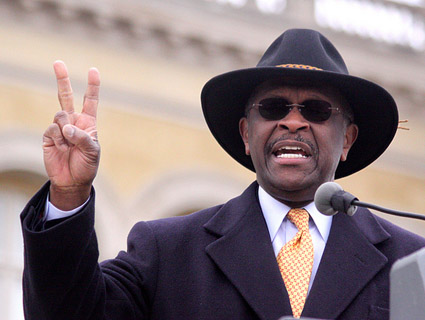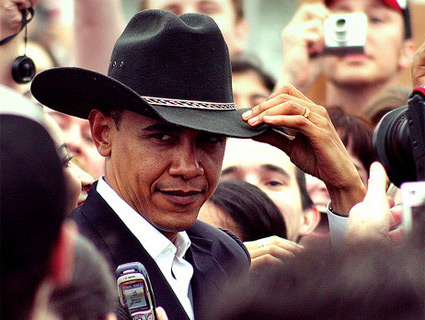
Jose Antonio Vargas, a Pulitzer-prizewinning reporter who recently admitted being an undocumented immigrant, speaks to a group of student journalists.<a href="http://www.flickr.com/photos/campusprogress/2719329139/">Campus Progress</a>/Flickr
What will happen to Jose Antonio Vargas, the journalist who has written a dramatic story outing himself as an undocumented immigrant? Some anti-immigrant conservatives have already called for him to be deported, but they may be out of luck. I talked to two immigration experts, both of whom concluded that the federal government is not likely to deport Vargas simply for coming to this country without papers as a child.
“I don’t think he’ll be detained, and he’s unlikely to be deported,” concludes David Leopold, a Cleveland-based immigration attorney and president of the American Immigration Law Institute. “Under immigration law, he could be exposed to deportation and detention,” Leopold notes. But in the past, federal authorities—facing limited resources—have used prosecutorial discretion, and the Obama administration has repeatedly emphasized that it prioritizes deporting those convicted of violent crimes.
Like Vargas, supporters of the DREAM Act—which would give legal status to some immigrant youth and students—have outed themselves as undocumented in the past year, and federal authorities haven’t pursued deportation, notes Marshall Fitz, director of immigration policy at the Center for American Progress. “Vargas’ very public profile helps inoculate him from that kind of retributive act.”
But, Leopold says, Vargas may have subjected himself to both civil and criminal prosecution due to some of the actions he’s taken to conceal his immigration status. “Looking as an attorney, I see admissions as to very specific conduct that’s troubling to me…The use of fraudulent documents, a fake passport, false Social Security Number, claiming citizenship I-9 form, falsified documents—some of these could lead to criminal investigations.” And if Vargas’ employers knowingly hired him as an undocumented immigrant, they would have violated federal law as well, he points out.
To be sure, prosecutorial discretion could be applied here as well. “A lot of people in this country came in on a false passport,” says Leopold, yet ”the government will decline to prosecute in many cases.” More likely is an extended period of uncertainy for Vargas, adds Fitz: “The exposure does put him in a potential legal limbo,” he says. “It’s uncharted territory.”














